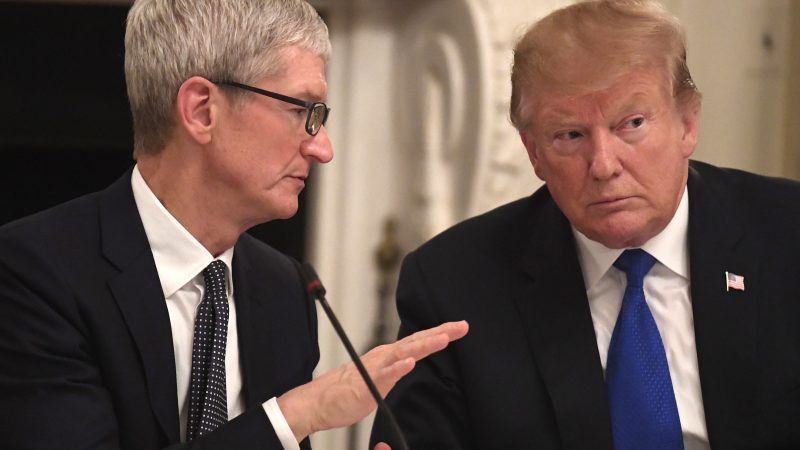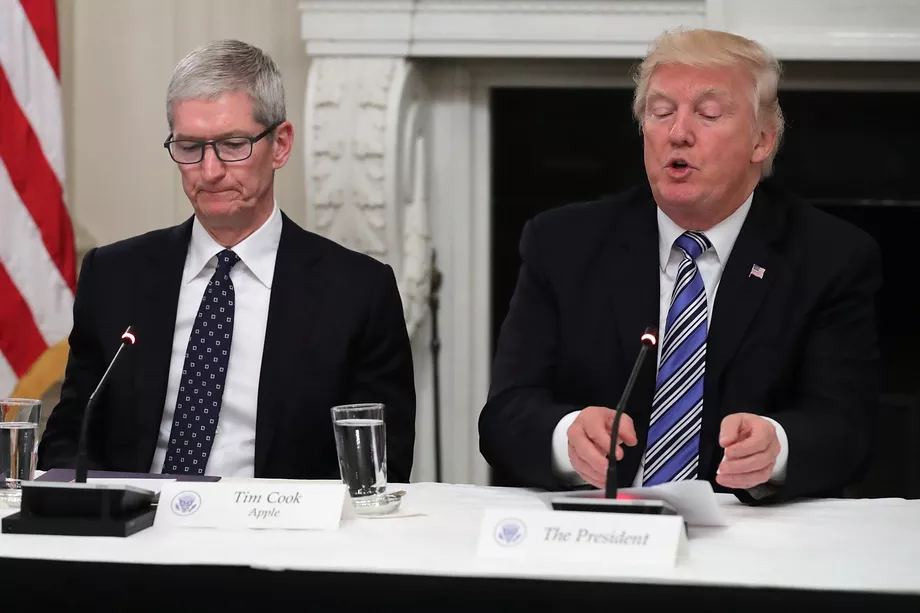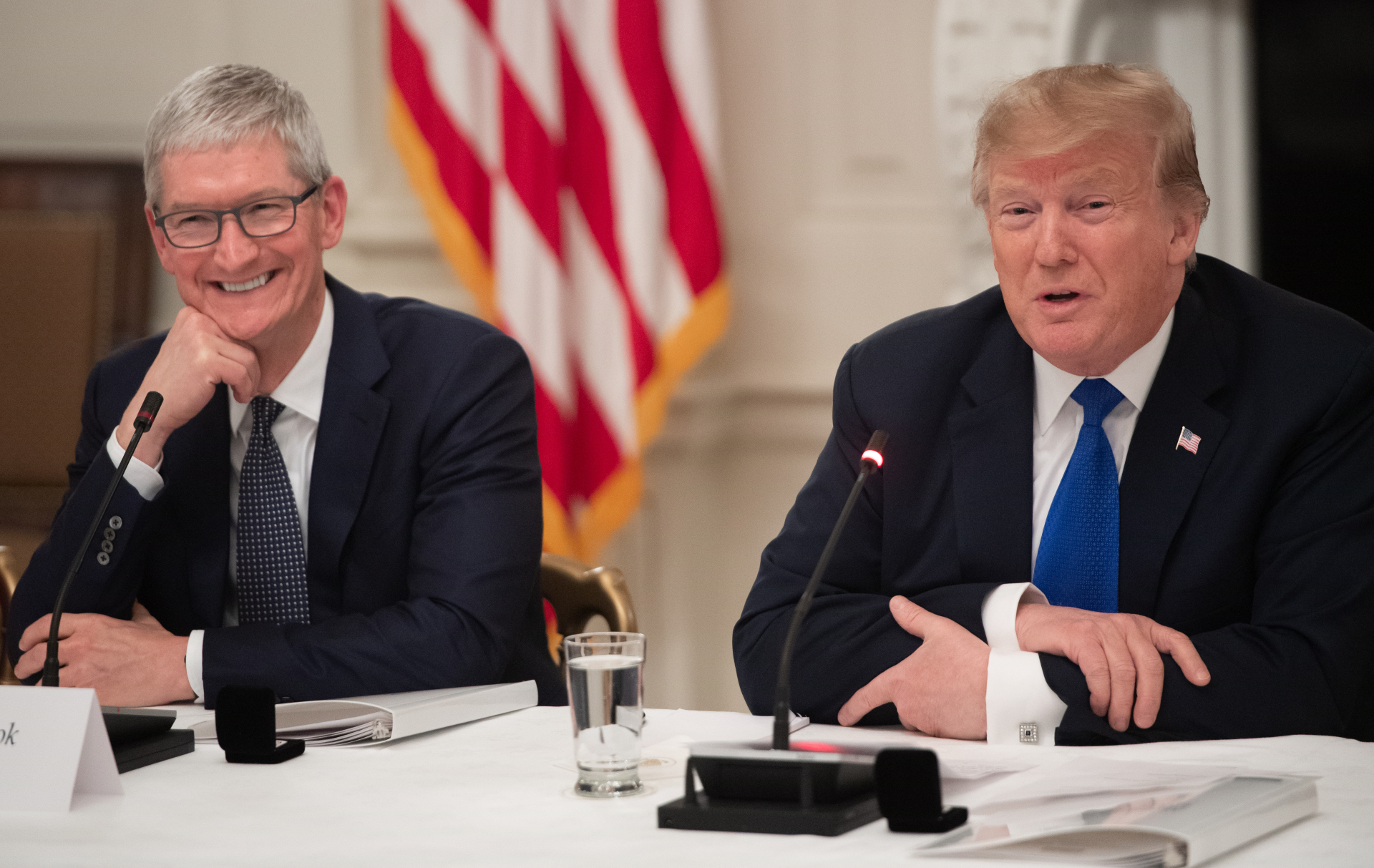Just a week ago, the United States Trade Representative (USTR) delayed tariffs for certain electronics, which Trump said was done to keep prices down for the holidays. While the announcement offered manufacturers like Apple some relief, the company has still been under heavy pressure from the upcoming tariffs, thanks to the US-China Trade War.
While Apple already asked for an exemption for Mac Pro parts in the past, US President Donald Trump pledged to deny the request, stating that his administration wouldn’t allow Apple to avoid the tariffs, after previously saying a 10 percent rate could be “very easily” shouldered by consumers.
However, just last Friday night (August 16th, 2019), US President Donald Trump met with Apple Chief Executive Officer Tim Cook for dinner. The president tweeted about Apple once more, but this time his tweet was a lot more positive. Trump wrote on a tweet before his meeting with Cook, saying “Having dinner tonight with Tim Cook of Apple. They will be spending vast sums of money in the U.S. Great!”

Trump and Cook had dinner at Trump’s golf club in Bedminster, N.J. Then on Sunday, Trump briefly spoke about his meeting after 10 days at the club, telling a small group of reporters, “I had a very good meeting with Tim Cook. I have a lot of respect for Tim Cook, and Tim was talking to me about tariffs, and one of the things that he made a good case, is that Samsung is their number one competitor and Samsung is not paying tariffs because they’re based in South Korea. And it’s tough for Apple to pay tariffs if they’re competing with a very good company that’s not. I said, ‘How good a competitor?’ He said they are a very good competitor. So Samsung is not paying tariffs because they’re based in a different location, mostly South Korea but they’re based in South Korea. And I thought he made a very compelling argument, so I’m thinking about it.”
It’s important to highlight that this wasn’t the first time that either Apple, or even Cook himself expressed a major concern over the penalties from tariffs. Cook had already pointed out these concerns in a past meeting with Trump. However, it seems that mentioning Samsung finally inspired the president to agree with Cook. Cook’s concerns have also echoed through representatives from different industries, stating that Trump’s tariffs unfairly penalize goods produced by many U.S. companies.
While most of Apple’s products are assembled in China (making them subject to the imposed 10 percent import tax that’s due to go into effect on September 1st), Samsung has a more diversified supply chain, meaning most of its manufacturing is located in South Korea and Vietnam. This basically means that Samsung isn’t affect as hard as Apple by the tariffs related to the US-China Trade War. While products like the Apple Watch and AirPods will be hit by these tariffs earlier, on September 1st, others like the iPhone, iPad, and MacBook lineup won’t be hit until December 15th, after a delay that will accommodate the holiday shopping season.
Apple had already sent a letter in June imploring the Trump administration to rethink their tariff program due to reduced economic contribution and global competitiveness. Then in late July, Trump tweeted out his response about easing on tariffs over Apple, giving a straight answer to the reports that Apple’s Mac Pro desktop would no longer be produced in the United States. Trump wrote on his tweet, “Apple will not be given Tariff wavers, or relief, for Mac Pro parts that are made in China. Make them in the USA, no Tariffs!”

Meanwhile, Apple has been looking to slash its reliance on Samsung’s display technology. The company is reportedly in the final stages of certifying advanced screens from top Chinese display maker BOE technology group for its next generation of iPhones. BOE’s entry could ultimately threaten South Korean companies’ (like Samsung) leading position in the display industry, which would consequently give Apple more leverage to squeeze price cuts out of Samsung. Apple currently buys old LEDs from Samsung Electronics, which dominates the global premium screen market with a more than ninety percent share.

Regarding the strong case presented by Tim Cook, which highlighted that US tariffs would put Apple at a clear disadvantage against Samsung (who wouldn’t be as affected), US President Donald Trump stated that Apple’s CEO made a compelling argument. Trump later said that he’ll think about their conversation, which could lower the tariffs imposed on Apple, or… who knows… maybe even free the American multinational technology company from the tariffs generated by the US-China Trade War.





